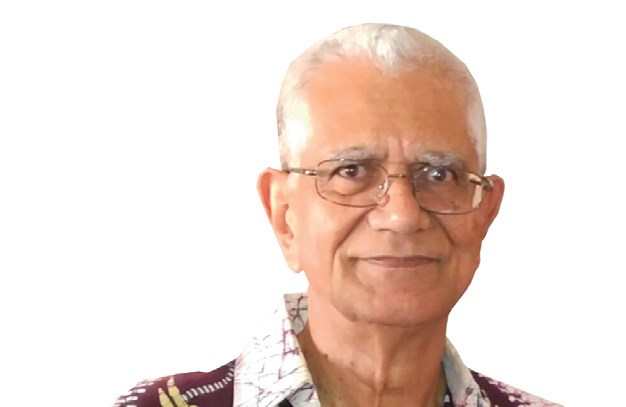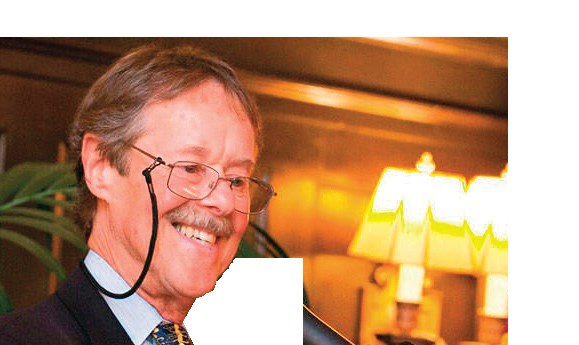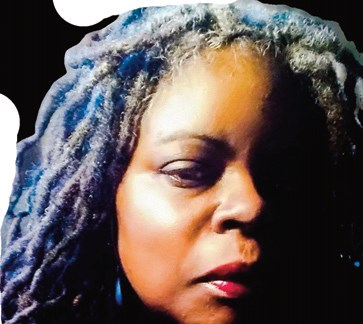Back in the early 90s, I had the privilege of being a charter member of the Miami Chapter, Coalition of 100 Black Women, a national organization.
The Miami Chapter leveraged a relationship I had with CABLE TAP, a community access television station, for which we wrote, produced and hosted a cable television program called “Scandalize my Name.”
The focus of the program was to explore and explode various myths and stereotypes about black folk.
The show was anchored by a rotating member of the Coalition, and an invited subject-area expert, usually a University professor, who would help explain why a particular myth or stereotype existed in the first place, and why it may have persisted.
One of my favorite: “Black folk are lazy, cheat, and steal.” We invited distinguished FIU professor of Sociology and Anthropology, Dr. Marvin Dunn to help us with that one.
Prof. Dunn explained that during the hundreds of years of chattel slavery, and for many years thereafter, under the sharecropping system, followed by Jim Crow Laws, black folk had little incentive to work hard (slavery did not pay wages); sharecroppers barely made ends meet, and Jim Crow kept blacks out of the free market for competitive jobs; blacks were constantly underfed and malnourished (an occasional stolen chicken or a few extra vegetables were needed for survival), and that ‘cheating the ‘master’ became a badge of honor in the slave-quarters- a sign of being clever and smart.
Here’s another one we explored and exploded: “Blacks are promiscuous.”
Again, under the chattel slave system, rapid and frequent reproduction was encouraged amongst women, and male ‘breeders’ were highly valued, and often ‘put out to stud’-for a fee.
Ok. I hear the chorus: “We are now one hundred fifty years away from those times and there should be no excuse for any of those behaviors to continue.”
I will not argue against that.
I agree that it is long past a reasonable time period to have learned better, or to have certain behaviors bred out. We should, by now, strive to live up to society’s highest expectations of all its citizens.
Right?
Yes, I’m talking about black folk, but I’m also talking about all folk.
“Houston, we have a problem.”
Myths and stereotypes are more entrenched than ever before. Nowadays, they are not just about racial profiles.
That is why during the biggest television viewing event of the year, we saw two campaigns that addressed persistent and damaging myths and stereotypes about half the population. The first one, “Like a Girl,” is designed to get folk to understand that being female is not an automatic limiting, handicap, and that ‘girls’ can and should be encouraged to do anything they want.
The campaign is as much for women (we are often as guilty as males in stereotyping females) as it is for men.
The second campaign we’ll see during the coveted commercial spots during the Super Bowl is a message against domestic violence (most commonly reported as male against female violence).
Where do I begin?
The NFL is under scrutiny for how it has nurtured, ignored, or neglected the culture of violence, on and off the playing field.
Many will see this televised campaign as a small measure to assuage the beleaguered image of the football League.
Too little, too late? Maybe.
But I have hope that this message of the two campaigns will not be lost: even though, upon close examination of human history, it appears there is something inherent in our nature which allows us, if unchecked-by laws, to treat other humans inhumanely; i.e., to kill, dismiss, disrespect, maim, enslave, beat, starve, denigrate in countless ways, and otherwise not love the ‘other’; I believe that there is still some small hope that a higher part of human nature can be rekindled: that we can actually be taught to love one another.
If I don’t see you in me; and you do not see me in you, then we have already ‘killed’ one another.
If differing skin tones, hair textures, styles or coverage of garments, languages, food preferences, gender and genitalia, and Gods offend, then war has already been declared; a right to breathe freely on this earth has been stolen.
We are both dead to the possibilities of a greater world when we reject the ‘other.’
My ancestors left me with a strong pool of survival genes: to survive; to excel; to rise above the expected; to bring others along; and to overcome all obstacles with love.
From a legacy of chattel slavery to living out on a world stage, I invite you all to join me in a collective action to love one an ‘other.’
Antonia Williams-Gary is a consultant with Miami-based Savings and Grace Enterprise. She may be reached at toniwg1@gmail.com













No Comment